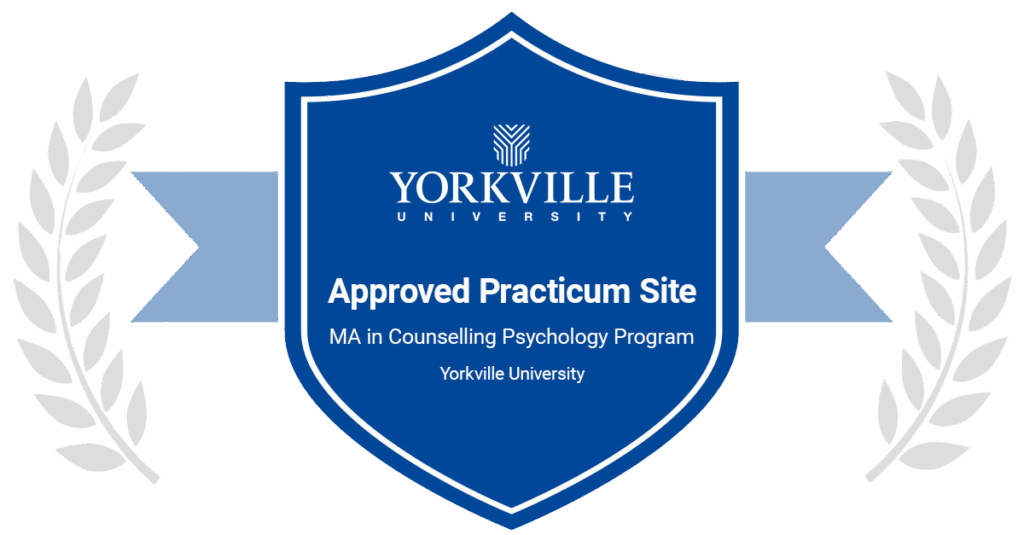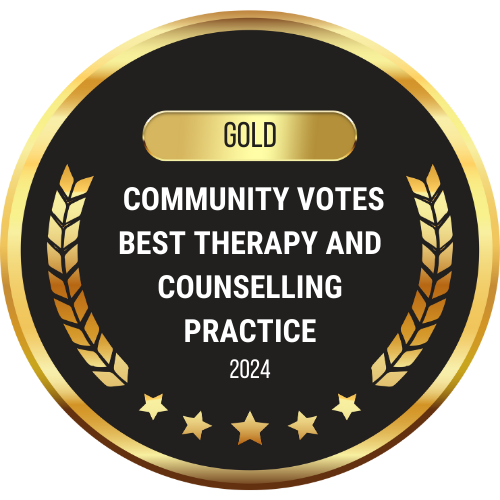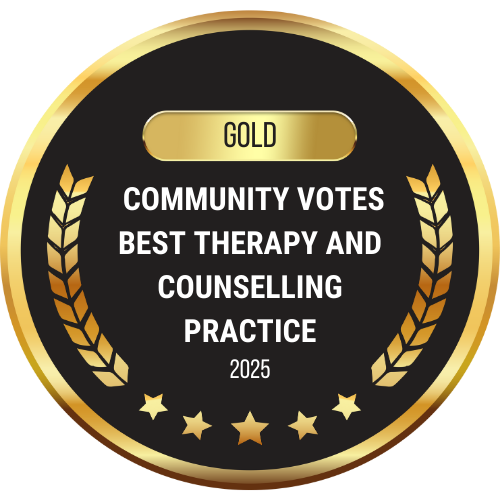At a glance
ADHD
Do you feel a sense of restlessness or find it difficult to stay focused on tasks? Are you forgetful, distracted, or struggling with time management or organization?
ADHD can be debilitating and impact your ability to function day-to-day. It can affect all areas of life from social to academic to careers. Therapy can help you gain practical skills and learn strategies to manage your symptoms. If you are ready to regain control of your life, get in touch with Mindful Path Counselling.
Adjusting To Life Transitions
Are you facing a change in your life that is creating feelings of overwhelm, stress or uncertainty?
Navigating life transitions can be a turbulent and complex experience. Whether it is dealing with the pain of a divorce, a move, a career change, marriage, the birth of a child, a loss, or retirement, the emotional rollercoaster of these transitions can be overwhelming. With support, these experiences can be navigated with more ease and understanding. Therapy can help you process the emotions you are experiencing, manage your stress levels, and cope with the challenges associated with shifting roles. We can help you feel more confident in your ability to handle and navigate future life transitions with less overwhelm and provide greater clarity about the emotions you’re facing.
Adjustment Disorders
Do you struggle to cope with stress or change?
Adjustment disorders can leave you feeling anxious, sad, hopeless, and irritable. They cause you to struggle to find joy in activities you previously enjoyed. Therapy can help you understand your emotions, process change, and develop coping strategies so you can start living a more fulfilled life.
Anger Management
Do you experience intense anger or have difficulties controlling your temper?
Anger is a normal human emotion. However, if your temper is leading to conflicts in your relationships, problems at work, or even legal issues, you may benefit from support. Therapy offers a safe and supportive environment to understand the root causes of anger and to start developing healthy coping strategies. Regain control of your temper and life.
Anxiety
Is anxiety keeping you from living the life you want?
Anxiety symptoms can feel like excessive worry, dread, or fear. It can cause muscle tension, sweating, and trouble sleeping, and is often associated with a sense of disconnection from things you once enjoyed. Therapy can help you manage your anxiety with the right tools, strategies, and support you need to better understand and cope with your feelings. We can help you gain control and feel relief, so you can get back to living your life.
Autism Spectrum Disorder
Do you struggle with social communication or interactions? Does this impact your ability to form relationships or friendships? Do you engage in repetitive patterns or interests?
Autism Spectrum Disorder (ASD) can present very differently in different people. Many people with high-functioning autism go through much of their lives without knowing they have it. However, being diagnosed with ASD can provide a sense of relief.
With therapy, you can better understand yourself and your subconscious tendencies. Together, we can work to develop your social skills, and improve communication, self-care, and organization. Book an appointment and see if therapy may be right for you.
*Please note, we do not diagnose ASD. If a diagnosis is necessary, our team can connect you with a psychologist for an assessment.
Bipolar Disorder Therapy
Do you experience extreme and unexplainable mood swings?
Bipolar disorders can result in very high highs and very low lows. These mood swings are sometimes described as opposite feelings of euphoria/mania (elevated mood, high energy, being impulsive) and depression (fatigue, losing interest, chronic sadness). Bipolar disorders may impact the quality of relationships you develop and maintain, your ability to perform at work or in school, your physical health, and your day-to-day functioning. Therapy can help you manage your symptoms, identify triggers, and learn to cope with mood fluctuations. If you’re ready to regain control of your mood and your life, we can help.
Borderline Personality Disorder
Do you have difficulty regulating your emotions? Do you engage in impulsive or self-destructive behaviours? Do you find it difficult to form and maintain interpersonal relationships?
People with Borderline Personality Disorder (BPD) often feel empty, have a fear of abandonment, and are unsettled about their identity or sense of self. It’s common for there to be extreme fluctuations in mood over a short period of time. It can also be difficult to form relationships as people with BPD struggle to trust others, or their fear of rejection or abandonment prevents them from getting close at all.
Therapy can help individuals with BPD regulate their emotions, develop interpersonal skills, build boundaries, and learn to communicate more effectively. It can also help individuals explore their sense of self so they can work towards better self-esteem and self-worth. If you’re looking for support or believe you may have BPD, reach out. Our team is here to support you.
Chronic Pain or Illness
Have you found it difficult to adjust to life due to chronic pain or illness?
Chronic pain or being diagnosed with a chronic illness can impact the way in which you live your day-to-day life. It may require you to create new habits, prevent you from doing activities you previously loved, or cause you to experience guilt as a result of needing additional support from people around you. Therapy can help you navigate the changes you experience as a result of pain or illness. We can help you navigate challenges so you can start feeling better and enjoying life again.
Communication & Boundary Setting
Does saying no make you uncomfortable or lead to ruminating thoughts?
Setting boundaries in your personal and professional lives can be challenging and overwhelming. It can feel uncomfortable to say ‘no’ or to establish limits with others. This is particularly common if you tend to avoid conflict and have people-pleasing tendencies. When you fail to set boundaries, you are prioritizing the needs of others rather than yourself. This can lead to feelings of overwhelm, resentment, and a deep sense that you are being taken advantage of.
Boundaries are an important part of any healthy relationship, be it with yourself or others. Therapy can help you learn to set boundaries in a way you feel confident about. Together, we can explore the root causes of why it is difficult to set boundaries and develop skills and strategies to set healthy boundaries in the future. Learn to say ‘no’ with confidence.
Conduct Disorders
Does your child consistently challenge or push social standards or rules?
Conduct disorders are characterized by a general disregard for others and can lead to difficulties following rules or behaving in ways that are generally socially acceptable. Although expressed differently, behaviours may include aggression towards other people, vandalizing property, deceiving, bullying, threatening, manipulation, theft, and intentional rule breaking. Commonly, individuals with conduct disorders don’t feel or express remorse for their actions.
Therapy is helpful for individuals with conduct disorders as well as their support system. It is effective in helping individuals develop self-awareness, emotional regulation, and coping strategies. Therapy can also help family members/guardians develop strategies for navigating the behaviours resulting from a conduct disorder as well as improve communication and relationships. We are here to help you, your family, and your child navigate the emotions and behaviours resulting from conduct disorders.
Depression
Have you lost some or all of the joy you used to experience?
Depression symptoms can manifest as feelings of sadness, hopelessness, and a lack of energy or interest in activities that were once enjoyable. Physical symptoms can include changes in appetite, fatigue, and trouble sleeping. Emotionally, depression can leave you feeling isolated and alone. Therapy can be helpful in treating depression by providing support, understanding, and coping strategies. Therapy can help you experience improved mood, increased motivation, and a greater sense of hope and wellbeing.
Dissociative Disorders
Do you often feel disconnected from reality?
Dissociative disorders can cause you to feel detached from yourself/your body, lead to a feeling that what is around you is unreal or distorted, lead to confusion around your identity, or result in memory loss or gaps in memory. You may feel emotionally numb and have difficulty expressing your emotions. Although there are various causes of dissociation, it is commonly experienced in response to stressful situations, abuse, and trauma. Therapy can help you process traumatic experiences, provide you with the tools and skills to manage dissociation, and learn to identify your sense of self. Find your way back to reality with the Mindful Path Counselling.
Eating Disorders
Do you constantly think about food or feel guilty after eating?
Constantly thinking about what you eat can be exhausting. It can take up your thoughts every moment of the day. When you struggle with your relationship with food, you may experience anxiety, guilt, shame, and low-self esteem. Sometimes, disordered eating patterns are a way to feel in control when everything around you seems out of sorts.
Eating disorders and having a negative relationship with food can result in depression, anxiety, and social isolation. They can pull you away from activities you once loved and people important to you. Therapy provides a safe environment to explore the underlying causes of disordered eating habits. Together, we can uncover negative beliefs and attitudes about food, weight, and body image so you can develop a more positive and healthy relationship with both food and your body. Get the support you need to free your mind and start loving yourself again.
Grief and Loss
Are you struggling to move forward after a loss or finding that your grief can feel like too much to handle on your own?
Grief and loss can be overwhelming and can bring up a range of emotions, including sadness, anger, guilt, and confusion. It’s common to feel isolated and disconnected from the people around you. Therapy can help you manage those feelings and work through them in a safe environment. You can explore why you feel the way you do, develop healthier coping mechanisms, and ultimately take the steps to move forward at a pace that works for you. You don’t have to face your pain alone, we can help.
Infertility
The stress and uncertainty of trying to conceive and undergoing fertility treatments is profoundly triggering. Our emotions can take us on a ride: we feel things such as fear, sadness, regret, anger, jealousy, and frustration cycling through us. Social events, public places, and even our workplaces can become full of triggers, as other people’s pregnancies and babies seem omnipresent.
When we work with clients experiencing infertility, we emphasize effective coping strategies, emotional management, and helping clients navigate the myriad of treatment and medical decisions that are sometimes involved. We work with all types of prospective parents, including single parents-to-be, same-sex couples, adoptive parents, and people who are experiencing secondary infertility (difficulty conceiving the second child). We are here to support you as you navigate the emotions and thoughts resulting from infertility.
Narcissistic Abuse
Have you experienced belittlement, constant criticism, gaslighting, or emotional coercion by a partner, family member, colleague, friend, or acquaintance?
Narcissists can have a lasting impact on your self-esteem, confidence, and mental health. The trauma can result in depression, anxiety, isolation, and fear. Narcissistic abuse counseling can be helpful to validate your experiences, identify the patterns of abuse you’ve experienced, process trauma, develop healthy boundaries, and be a resource for rebuilding your self-esteem.
Narcissistic Personality Disorder
Do you feel superior to everyone else around you or lack empathy for others?
The term “narcissist’ has been thrown around a lot recently. However, not everyone is a narcissist. Narcissistic Personality Disorder is characterized by individuals having an extremely inflated sense of self, feelings that they are better or superior than others, a need for attention, a sense of entitlement, and a lack of empathy for others. A lot of people with Narcissistic Personality Disorder actually lack self-esteem and are unable to handle even a small amount of criticism.
Therapy is a powerful resource for people with Narcissistic Personality Disorder. It can help individuals develop different behaviours, thoughts, and feelings so they can develop healthier relationships with themselves and the people around them.
Obsessive Compulsive Disorder (OCD)
Do you experience intrusive and unwanted thoughts, images, or impulses? Do these lead to you engaging in repetitive behaviours or mental acts to curb anxiety?
With OCD, people are compelled to perform behaviours despite knowing their thoughts are irrational. This can result in feelings of guilt, shame, and anxiety.
Therapy can help you reduce the anxiety that results from obsessions and compulsions, explore and rework your thought patterns, and ultimately learn to accept yourself as you are. Book an appointment or request a free consultation to get started.
Oppositional Defiant Disorder (ODD)
Does you or your child experience persistent patterns of anger, irritability, or argumentativeness against people in authority?
These behaviours are associated with Oppositional Defiance Disorder (ODD) and typically begin in childhood. ODD can lead to challenges at home, at school, or in social situations. An individual with ODD may experience conflict with parents, teachers, adults, or other people perceived as authority figures. Although some level of defiance is common in children, ODD interferes with daily functioning and can cause strain in the home. Common behaviours of someone with ODD include constant arguing with authority figures; frequent temper tantrums; challenging rules and requests; blaming others for their own misbehaviour; activating out of spite; and deliberately engaging in behaviours to annoy others.
Therapy can help individuals with ODD process emotions, develop coping strategies, and develop problem-solving skills. Therapy is also helpful for family members or guardians of an individual with ODD by helping them understand behaviours and develop skills to set appropriate limits while maintaining a nurturing and structured environment. We are here to help you understand your child and feel more in control.
Perfectionism
Do you have very high expectations of yourself and constantly reach for flawlessness? Are these standards accompanied by critical self-evaluation and constant concern for how you will be perceived by others?
Setting unrealistic standards and aiming for perfection can be exhausting and overwhelming. It can impact your self-esteem and result in anxiety, depression, obsessive-compulsive disorder, and even burnout.
Therapy can help you gain control of your perfectionistic tendencies so you can embrace imperfection, set more realistic standards, and increase self-compassion.
Personality Disorders
Do you have a long-term pattern of maladaptive behaviours, thoughts or feelings?
Personality disorders can lead to a distorted self-image and cause you to engage in impulsive behaviours. You may struggle to find and maintain employment, manage day-to-day responsibilities, or maintain stable relationships. You may experience social isolation, substance abuse and self-harm resulting in hopelessness and distress. Examples of personality disorders include paranoid, schizoid, schizotypal, antisocial, borderline, histrionic, narcissistic, avoidant, dependent, and obsessive-compulsive.
Regardless of the type of personality disorder you have or think you may have, therapy can help you develop a more positive self-image, improve your relationships, and work towards personal goals. We are here to help you navigate the impact of your personality disorder so you can live the life you want.
Physical, Emotional, or Sexual Abuse
Has your experience with abuse kept you from living with any type of normalcy?
The effects of physical, emotional, and sexual abuse can be devastating and far-reaching. Victims of this type of trauma often experience feelings of guilt, shame, depression, anger, fear, and isolation. They may also have difficulty trusting others or forming intimate relationships. All these challenges can make it difficult to cope with day-to-day life.
Therapy can be a powerful tool for helping you heal from abuse. We can provide a safe space for you to process difficult emotions and experiences, and we can help create strategies for managing anxiety, developing self-esteem, and forming healthier relationships. When you’re ready to take the first step towards healing – we can help.
Postpartum Anxiety
Are you a new mother or parent experiencing excessive worry or fear after having a child?
Although some level of anxiety is normal after having a child, some people develop a more extreme level of anxiety called postpartum anxiety. Postpartum anxiety (PPA) is not as widely recognized as postpartum depression, despite being equally common.
You might be wondering, “If some level of anxiety is normal, how do I know if my anxiety is actually a problem?”. The line that divides normal amounts of worry from a level at which you may need support differs per person. You may benefit from therapy for PPA if you are experiencing: constant worry or a deep feeling that something bad is going to happen; if your anxiety is impairing your appetite or sleep habits; if you experience racing or ruminating thoughts that you can’t get a hold of; or if you’re feeling physical symptoms such as nausea and faintness.
Therapy is a valuable tool for individuals experiencing PPA. In therapy, the goal is to listen to you so you feel validated in your feelings and thoughts. Additionally, therapy can provide effective coping strategies, a deeper level of understanding, and a space to work through feelings.
Postpartum Depression
Are you experiencing persistent sadness, guilt or struggling to bond with your baby?
For many new moms, adapting to motherhood can be difficult. It’s not uncommon to face unexpected challenges as you develop a new routine. With postpartum depression (PPD), you may experience low mood, excessive crying or tearfulness, feelings of guilt or worthlessness as a new mom, difficulties in bonding with your baby, irritability, anger, or loneliness.
PPD can be experienced within the first few months of giving birth, but may also develop over a longer period of time. It’s often described as a longer-lasting and more severe form of the “baby blues”. There are many reasons individuals experience PPD, including changes in hormones, sleep deprivation, emotional changes resulting from new routines and interpersonal dynamics, a history of other mental health challenges, and environmental factors such as a lack of social support, finances, and complications experienced during pregnancy.
Therapy can help you adjust to all the feelings you are experiencing as a new mom by providing emotional support, guidance, and coping strategies. You don’t have to adjust to motherhood alone. We are here to support you!
Pregnancy Loss
Are you experiencing overwhelming emotions as a result of pregnancy loss?
An unexpected loss during pregnancy can lead to significant physical and intense emotional pain. You may be experiencing feelings of sadness, grief, anger, anxiety, helplessness, and loneliness. These feelings can impair your ability to function day-to-day.
For some people, social circles, including partners, family members, and friends, provide the support they need to work through their feelings. Other people may benefit from seeking additional support through therapy. Therapy offers a safe space to process emotions and develop strategies to help you move forward. If you’re looking for a space to feel validated in your experience and to work through your emotions, we are here to help.
Relationship Issues
Are you struggling to reconnect or build a stronger relationship?
Relationships can be complicated and sometimes leave us feeling lost and alone. You may be struggling with communication difficulties, trust issues, conflicts, or feeling emotionally disconnected from your partner. These challenges can impact your daily life, causing feelings of sadness, frustration, and anxiety.
Therapy can offer you a supportive and safe space to work through your challenges, develop healthy communication skills, build trust, and address conflicts in a constructive manner. Therapy can help you set healthy boundaries and offer the tools and support you need to create the connection you crave.
Schizophrenia and other psychotic disorders
Are you or a loved one frequently experiencing distorted perceptions of reality, such as hallucinations or delusions? Do these symptoms make daily living difficult, leading to feelings of confusion, fear, or isolation? Are you concerned about sudden changes in behaviour, thought patterns, or emotional responses?
Schizophrenia and other psychotic disorders are serious mental health conditions characterized by disruptions in thought processes, perceptions, emotional responsiveness, and overall functioning. With appropriate treatment, which may include medication, therapy, and support, individuals can manage their symptoms and lead meaningful lives. It’s important to seek early intervention and consistent care to navigate the challenges posed by these disorders and to embrace a hopeful path towards recovery.
Sleep Disorders
Is it consistently difficult to fall or stay asleep?
Sleep disorders can affect the quality, timing, and/or duration of your sleep. You may find yourself dreading bedtime because it’s going to be another long night of tossing and turning, waking up and not being able to fall back asleep, or waking up earlier than you want or need to. Sleep challenges can impact all areas of life and, ultimately, your overall health and well-being. Lack of sleep can lead to daytime sleepiness, difficulty concentrating, and irritability.
Therapy can help you understand what is causing your sleep problems and help you develop better sleep hygiene. Learn to gain control of your sleep cycle so you feel more rested and live a better quality life!
Stress Management
Do you feel like there’s no end in sight to the list of things you need to manage or accomplish in the day—at home and at work?
Overwhelming stress can bring up a range of emotions, including anxiety, frustration, and exhaustion. It’s common to start to shut down and feel disconnected from the people around you. Therapy can help you explore why you feel the way you do, develop healthier coping mechanisms, and give you the tools you need to manage your current situation and start living with more ease. We can help you make changes, one step at a time.
Substance Abuse
Do you find yourself relying more and more on a substance to help you get through the day?
Substance abuse can be a challenging experience that affects you and the people around you. You may be struggling with increased use, tolerance to what was once an occasional activity, mood swings, and relationship difficulties. It’s also common to feel shame, guilt, and a sense of disconnection from others and yourself. With therapy, you can experience a greater ability to manage triggers and cravings, improve relationships and feel a strengthened sense of self-worth. You don’t have to face this challenge alone, we can help.
Trauma & PTSD
Is a past event in your life keeping you from moving forward?
Trauma can cause symptoms such as intrusive memories, avoidance behaviours, hypervigilance, and feelings of anxiety, guilt, or shame. Emotional and physical responses to trauma can impact daily life and relationships. Therapy can help individuals who have experienced trauma process their experiences and develop healthy coping mechanisms. With therapy, you may experience a greater sense of control, improved relationships, a stronger sense of self-worth, and a renewed sense of hope for the future.
Workplace Psychological Health & Safety
As an organization you’re interested in improving Psychological Health and Safety in the workplace to align with the National Standard.
Together, we will work to break down perceived barriers to organizational change, create psychological health and safety for employees, and identify, and support you to respond to opportunities for psychological improvements within the workplace.
Psychological Health and Safety
Helping organizations adhere to the overarching principles of The Standard.
We can help organizations:
- Align psychological health and safety with organizational goals and objectives.
- Prepare employers to proceed with a psychological health and safety assessment.
- Apply tools to assess and analyze psychological health and safety.
- Develop implementation plans based on evaluation results.
- Assess and evaluate implementation plans.
Contact Us
Call Us
226-208-2722












Do you experience fear or self-consciousness in social situations?
Social anxiety can cause you to worry excessively about being scrutinized by others and may lead you to avoid social situations altogether. It can leave you feeling nervous, self-conscious, and embarrassed, even in non threatening situations. Therapy can help you identify and challenge negative thought patterns and beliefs that contribute to social anxiety. We can help you develop a more positive and confident self-image.